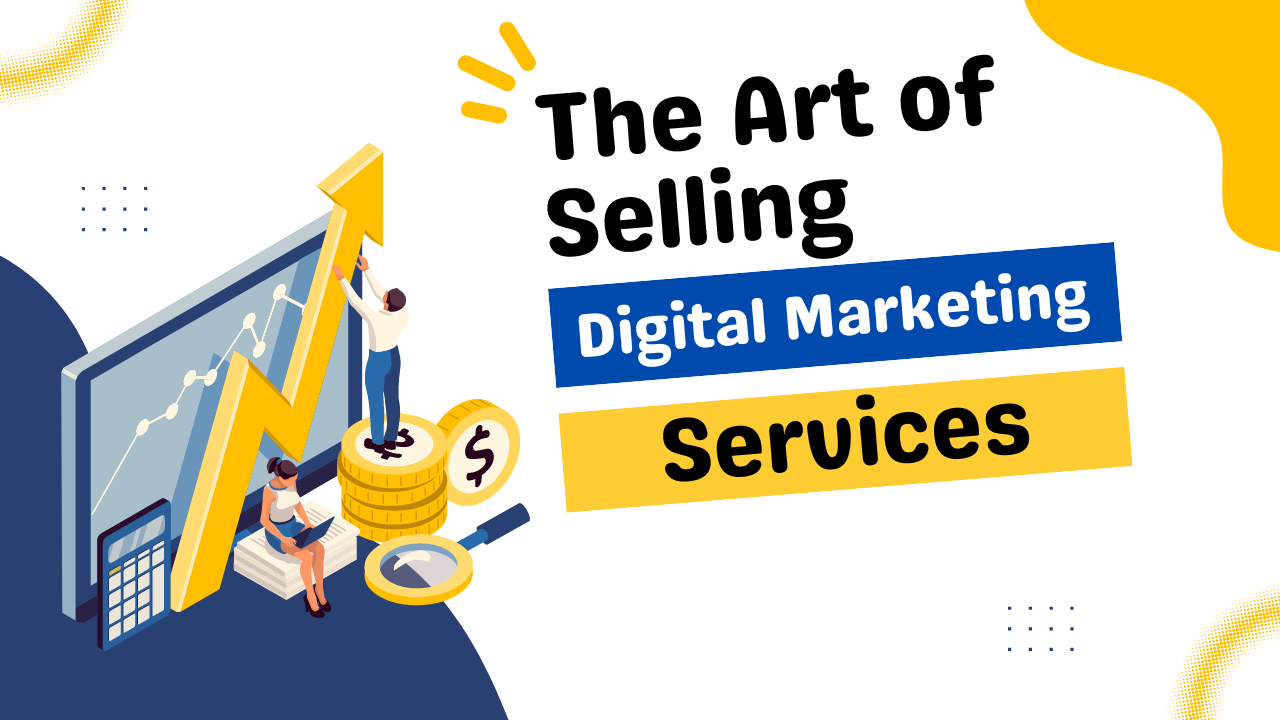The Art of Selling Digital Marketing Services

Introduction
In today's fast-paced digital world, the demand for online visibility is at an all-time high. Businesses across all sectors are looking to digital marketing experts to help them stand out in a crowded marketplace. But knowing digital marketing and selling digital marketing services are two very different skills. This guide explores the art of selling digital marketing services, offering actionable insights and strategies to effectively position, promote, and profit from your digital marketing business.
Understanding the Digital Marketing Landscape
Current Trends and Their Implications: Start by understanding the landscape including SEO, PPC, social media marketing, content marketing, and email marketing. Recognize trends such as the rise of voice search, AI technologies, and personalized marketing to better serve your clients.
Knowing Your Competition: Analyze your competitors to understand what services they offer, their pricing structures, and their client base. This will help you find your unique selling proposition (USP) and identify gaps in the market.
Identifying Your Target Audience
Client Personas: Develop client personas by considering various factors like business size, industry, budget, and digital presence. This tailored approach will allow you to address the specific needs and pain points of different segments.
Client Needs Analysis: Conduct thorough needs analyses with potential clients to understand their goals, challenges, and expectations. This step is crucial in crafting personalized service proposals that are more likely to close deals.
Crafting Your Offer
Service Packaging: Package your services in a way that appeals to your target audience. Consider offering tiered packages that cater to different levels of need and budget from basic SEO optimization to comprehensive digital marketing strategies.
Value Proposition: Clearly articulate the value your services bring. Focus on ROI, increased traffic, improved search rankings, and other key metrics that matter to clients. Use case studies and testimonials to validate your claims.
Marketing Your Services
Building a Strong Brand: Establish a strong brand identity for your digital marketing business. A consistent and professional brand across all platforms increases credibility and recall.
Content Marketing Strategy: Utilize content marketing to demonstrate your expertise. Publish articles, case studies, and white papers. Use educational content to address common client questions and concerns.
Social Proof and Testimonials: Leverage social proof. Showcase client testimonials, case studies, and industry certifications on your website and in your marketing materials to build trust and authority.
Sales Strategies and Client Acquisition
Consultative Selling Approach: Adopt a consultative selling approach. Focus on becoming a trusted advisor to your clients rather than just a service provider. Listen to their needs and offer solutions that best fit their business goals.
Networking and Relationships: Invest time in networking both online and offline. Attend industry conferences, participate in webinars, and engage on professional social media platforms like LinkedIn.
Follow-Up Strategies: Develop effective follow-up strategies to keep potential clients engaged. Use email marketing automation to nurture leads through personalized follow-ups.
Closing the Deal
Effective Proposals: Craft clear, concise, and compelling proposals that outline the benefits, pricing, and expectations clearly. Address potential objections upfront and make it easy for clients to say yes.
Negotiation Skills: Enhance your negotiation skills. Be prepared to discuss pricing and package details confidently. Offer flexible terms where possible to accommodate client needs while protecting your business interests.
Client Retention and Growth
Ongoing Support and Reporting: Provide exceptional ongoing support. Regular reporting on campaign progress and results helps keep clients informed and engaged.
Upselling and Cross-Selling: Identify opportunities for upselling and cross-selling. As you grow more familiar with a client’s business, propose additional services that could benefit their unique situation.
Conclusion
Selling digital marketing services requires a blend of in-depth marketing knowledge, strong interpersonal skills, and strategic thinking. By understanding your audience, creating compelling service packages, and maintaining robust client relationships, you can build a successful digital marketing service business that not only attracts but retains clients long-term.
FAQs
-
What is the best way to price digital marketing services?
- Pricing can be based on the scope of services, the complexity of the project, or the expected ROI. Many agencies opt for monthly retainers, project-based pricing, or performance-based fees.
-
How can I prove the ROI of digital marketing services to my clients?
- Use analytics and tracking tools to measure key performance indicators like traffic, conversion rates, and sales growth. Regularly share these results with clients to demonstrate the effectiveness of your strategies.

You must be logged in to post a comment.